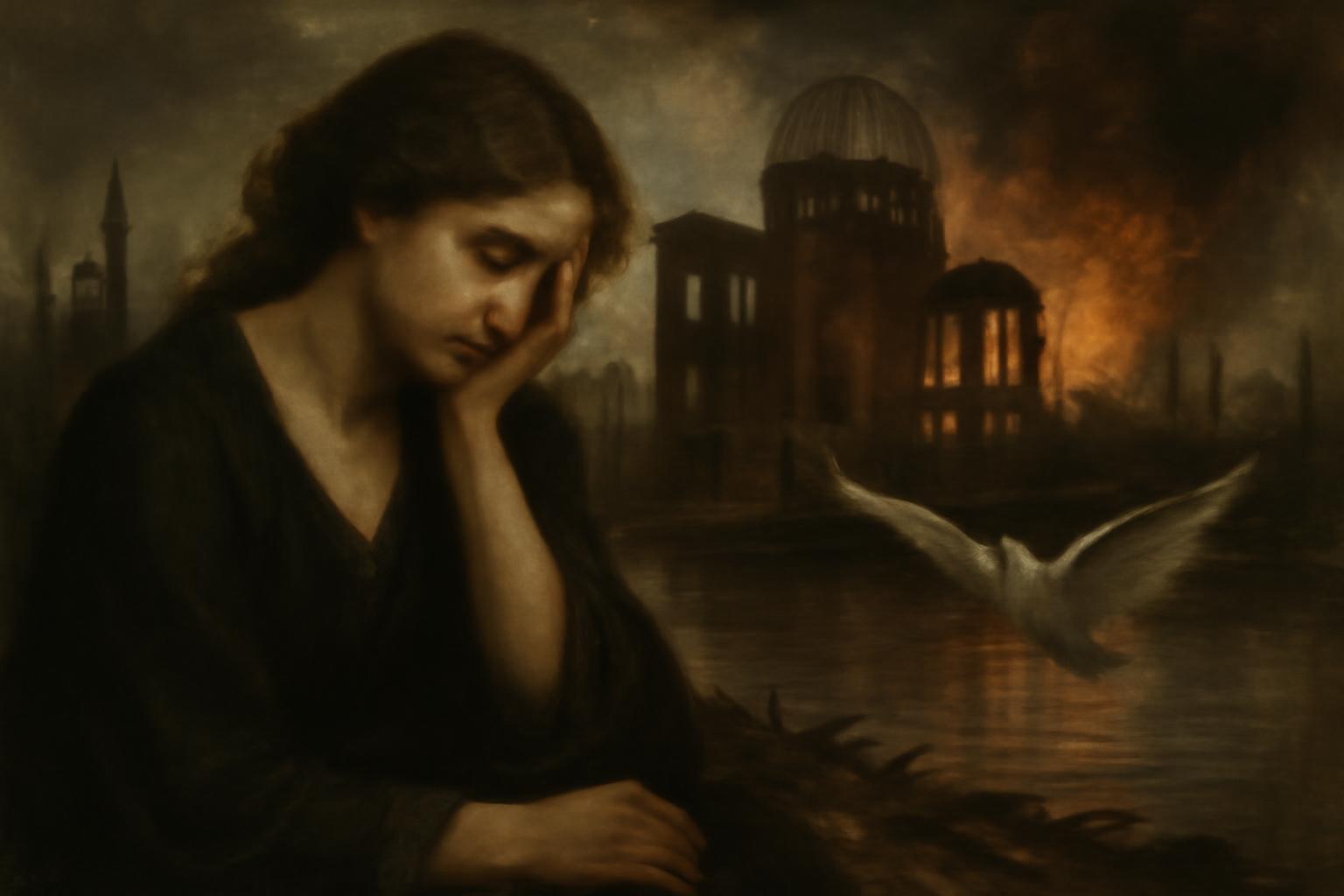As Persephone's mother wept in vain for her daughter's return from the underworld, so too do the gathered mourners in Hiroshima wail—silent now, more eloquent in their grief than a thousand screeds—against the chthonic legacy of August 6, 1945. The tolling Peace Bell resounds, a dolorous dirge to memory more fragile than parchment, as tens of thousands don funereal garb and lay blossoms of regret at the feet of that ghastly modern temple: the Dome, one of the few things left standing when Prometheus’s fire fell not as gift, but as curse.
How quickly the living fire sent little children, the old, and the unnumbered multitudes to nothingness, a holocaust rendered by men who mistook themselves for gods. Even now, as the aged hibakusha shuffle among mourners, haunted relics of the last century’s apocalypse, their trembling voices are almost silenced—for history devours its witnesses, and soon not one will remain to bear living testament to the world’s flirtation with annihilation.
The ironies multiply. We gather to grieve and swear “never again,” yet statesmen—cowed by fear and enthralled by power—continue to fondle the specter of nuclear destruction under the euphemism of “deterrence.” Mayors and survivors alike plead, Cassandra-like, into the void: “Remember our suffering, do not worship at the altar of rearmament, lest civilization itself become mere charred ruins.” Their calls echo like Antigone’s supplications to Creon, righteous and doomed to be ignored by ears grown callous in the marketplace of geopolitics.
What is this spectacle but a grim Nietzschean festival—the eternal recurrence of man’s will to power, with the Übermensch now imagined not as creative genius but as the engineer of a death’s artifice? Our culture, Nietzsche warned, is sick with ressentiment and animated by a herd morality that offers rituals of mourning while plotting next year’s victories in defense contracts. The tragic wisdom of the Greeks—that hubris begets nemesis—is lost upon a world that cherishes only amnesia and profit, and thus encourages catastrophe to return, ever more monstrous.
We stand upon the smoldering ruins of meaning, gazing toward an abyss lined with the shadows of Hiroshima and Nagasaki. With the last survivors fading, so too fades our connection to the horror that might have taught humility. But civilization, drunk on the stimulants of speed and abstraction, cannot remember even the lessons written in fire upon its own flesh.
In this twilight, Western culture slips past redemption, swaddled in technology and self-deceit, refusing the tragic wisdom of limits. Can there be tragedy, asked Nietzsche, for a race that no longer honors its wounds? As the bell’s reverberations dissipate, one fears we have become immune to mourning itself—proof, perhaps, that the West has died not in fire, but in forgetting.
